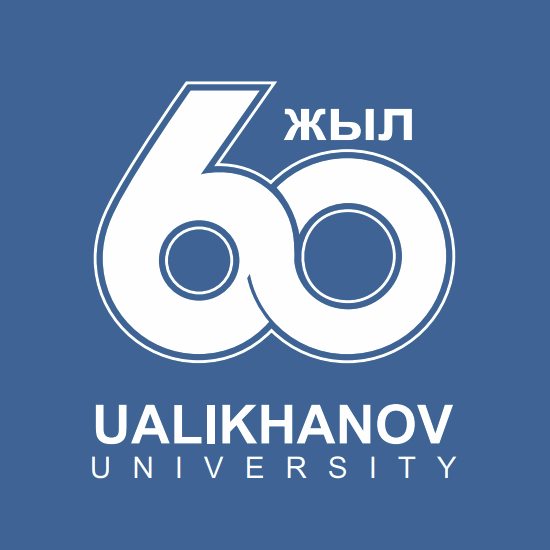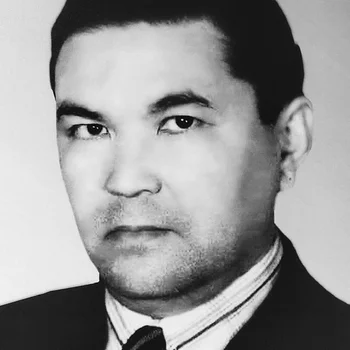

We are always in a hurry, we rush through time without stopping. We fly, rush headlong and stumble. From the initial date of birth to the last one not recorded. We forget about those who are no longer with us. However, we are all mortal, sometimes even suddenly mortal, and in order to remain human we must remember. Those who brought light and goodness through life and destiny must not be consigned to oblivion. Time inexorably passing from us has no rights if the memory is preserved. In the history of the Agrotechnical Institute named after Smagul Sadvakasov, the legacy of Isatai Galievich Temreshev (1938-2010) has a special place, because he remained in the memory of generations even after 43 years as the first. The first director of the Central Agricultural Institute branch in Kokshetau. The regional center joyfully and optimistically welcomed the decision from above to create a branch of the Tselinograd Agricultural Institute. There was a lack of professionally trained personnel for the agro-industrial complex of the region, although higher agricultural education in the former Kokchetav, and now Akmola region, one of the main breadbaskets of the country, was previously received by the youth of the virgin regions in neighboring Tselinograd. The energetic assistance of the first secretary of the Kokchetav regional committee of the Communist Party of the Kazakh SSR, Orazbek Sultanovich Kuanyshev, and the rector of the Tselinograd Agricultural Institute, Professor Moisei Aronovich Gendelman, contributed to the opening of a branch of the Tselinograd Agricultural Institute in Kokshetau in 1979. Initially, it was planned to train students in the two most basic agricultural specialties - “agronomy” and “animal science”. Candidate of Agricultural Sciences, Associate Professor Isatay Galievich Temreshev bore the brunt of solving economic problems and administrative regulation at the initial stage of the establishment of the branch. And already in 1980, the first enrollment of full-time students in the specialty “agricultural mechanization” became possible. The director of the branch, Isatai Galievich, despite the difficult circumstances, managed the new, newly formed team in an unusually calm and friendly manner, not pushing aside problems as they arose, but quickly dealing with them. He was a very discreet, intelligent leader with whom the employees felt friendly and comfortable working. Zeynegul Dzhumabekovna Sattybaeva recalls: “In 1983, after graduating from the Faculty of Soil Science and Agrochemistry of the Kazakh Agricultural Institute, I was assigned as an assistant to the Department of Botany in a branch of the Central Agricultural Institute. I think I was lucky: by that time the branch had already strengthened, not only survived, but also developed. Thanks to the organizational qualities and deep professional knowledge of our leader Isatay Galievich, before my eyes, the infrastructure of the branch was consistently strengthened, and the qualitative and quantitative level of the teaching staff grew. The director’s kindness inspired and motivated me, a young specialist, to work with passion.” Spouses Dolores Mustazhanovna and Alexander Alexandrovich Poddubny remember Temreshev with special warmth: “He was an extremely sensitive, fair, absolutely conflict-free leader. Let us note that despite being busy with educational and economic problems, a leader like our Isatai Galievich managed to tirelessly take care of us, and he was interested in literally everything: organizing the life of employees, how we live, what our mood and well-being are, how we eat, and little things for the director didn't exist. At low purchasing prices for the branch employees, we purchased potatoes, cabbage, carrots, and vegetables for seasonal preparations in the fall; for the New Year, we could even afford to purchase scarce horse delicacies at an affordable price. The director was concerned about providing his teachers and staff with housing; the issue of finding a roof over their heads is always relevant. Our director achieved a lot for us socially: a comfortable five-story building was built in which apartments were distributed to the families of teachers. Isatay Galievich was extremely sensitive to the selection of personnel: thanks to his connections and on the recommendation of his friends, qualified specialists and competent professionals from various universities of the country came to our branch, they were presented with apartments or rooms in a dormitory." "The authority of the candidate of agricultural sciences, associate professor Isatay Galievich Temreshev was deservedly high among students,” admits retired Colonel of the Ministry of Internal Affairs, Chairman of the regional Union of Disabled Persons and Veterans of the War in Afghanistan Duanbai Ybyrai. “In those years, the Kokshetau branch of the Central Agricultural Institute was mainly attended by not only yesterday’s school graduates, but also older guys, many of whom went through the crucible of the Afghan war, survived, returned to their fatherland and decided to devote themselves to their native village, trying to improve the agricultural economy of the region . I still can’t forget the fatherly care for my peers who returned from the war. First of all, we were provided with places in dormitories, helped with everyday life and accommodation. Thanks to the active life position of the branch’s Komsomol organizer Marat Dzhumabekov, the Student Youth Center was created. I remember well that when entering the specialty “Agricultural Mechanization”, preference was still given to us, soldier applicants with an “Afghan” background. Isatai Galievich was always on the side of the “Afghans”, defended our interests, and during our studies we never heard a rude word from him or met a sidelong glance. For us, students, Isatai Galievich was a real wise mentor, and it was impossible to be late for Associate Professor Temreshev’s lectures, as well as to miss seminars. Despite his trusting, warm attitude towards students, Isatai Galievich remained a demanding teacher, able not only to enthusiastically give us knowledge, but also to ask us strictly during exams.” Galym Madeshovich Bekmagambetov, at that time the first secretary of the Kokchetav city committee of the Komsomol, recalls how public life was boiling and seething in the opened KF TSAR. Student formation groups were then gaining strength, young people worked with spark, with Komsomol enthusiasm, and the boys and girls knew how to organize leisure time in an interesting, lively, exciting and meaningful way, they created a popular vocal and instrumental ensemble, the “Tamasha” group. The brightest representatives of student youth, in close collaboration with Isatai Galievich, acquired leadership skills, developed organizational skills and received full support from the city Komsomol in all endeavors.” Subsequently, the traditions of an active life position were adopted by students and undergraduates of the already independent agricultural institute: they massively participated in the republican movement “Zhasyl El”, joined the ranks of the fighters of the student mechanized detachment “Zvezda”, in the youth organizations “Alliance of Students”, “Student Maslikhat”, “Union of Rural youth." Later, many gifted students and graduates of the branch won grants in the Bolashak and LOGO programs; we note that at that time they taught foreign students from Mongolia, China, Russia and Uzbekistan. The historical date of the first of August of the hot summer of 1979 is inscribed in the glorious chronicle of Kokshetau University named after Shokan Ualikhanov. In 1979, the university did not have its own branch building; classrooms were located in the old school No. 13, located on Yanko Street, building 135. On the desk in the office of director Temreshev, students and teachers could see a model of the project for the future building of the CSHI branch. Isatai Galievich dreamed of making the construction of a modern educational building a reality. The foundation of the building was laid, but the construction itself began only under Bakhyt Gazizovich Zhunusov in 1985 with the tangible support of Orazbek Sultanovich Kuanyshev. Particularly noteworthy is the remarkable fact that the construction can be called a people’s construction without a stretch: after the training sessions, teachers and students came out together as builders. They helped the masons, plasterers, painters, carpenters, and mechanics as much as they could: everyone really wanted to hasten the day when they would be lucky enough to study and work in the new building. Birch, spruce, pine, and shrubs were planted, flower beds and flower beds were laid out. That is why now the greenery is so pleasing to the eye, shady alleys of orderly rows of trees decorate the cozy territory of the university’s Agrotechnical Institute. “You can’t see faces face to face, big things are seen from a distance,” and indeed, four decades later, the realization truly comes that opening a branch in Kokshetau back in 1979 was an accurate, correct strategic decision. After the development of the virgin lands, the farms of the regions of the northern region of Kazakhstan, which were in dire need of agricultural specialists, received certified mechanics, agronomists, livestock breeders, livestock specialists and veterinarians, economists, engineers and soil scientists. The activities of the departments were gradually improved: at the Faculty of Animal Engineering, the departments of genetics and breeding of farm animals were created, headed by the head Kabyl Isabekov, feeding of farm animals with the head Hvan, and agricultural economics, headed by Kuanyshbai Nurmagambetov. At the Faculty of Agronomy, the Department of Botany and Plant Physiology was organized, Larisa Kambulina became the head. And the new department of plant growing and agriculture was headed by former director Isatay Galievich Temreshev, the department of agrochemistry and soil science by Sagintai Elubaev and the department of chemistry by Orazkhan Aimakov. The scientific and teaching activities of Isatay Galievich actively continued after leaving the post of director: Associate Professor Temreshev, together with his son Izbasar, is actively involved in the development of an atlas-identifier for identifying animal pests of agricultural products and raw materials common in the territory of Kazakhstan. The atlas was published as part of the project “Increasing the competitiveness of agricultural products” - now it is a valuable source of popular scientific information and expert opinion. At one time, the Agrotechnical Institute of Kokshetau University named after Shokan Ualikhanov was considered the best higher educational institution in the Akmola region, and this, undoubtedly, is the personal and significant merit of the first director of the branch, Isatay Galievich Temreshev. Once Maxim Gorky wrote in a letter: “My son, you left, but the flowers you planted are growing...” In the fate of Isatai Galievich, the wonderful garden of his aspirations, actions, good deeds and fulfilled hopes gave wonderful shoots, and today it is a whole a grove, or maybe a small forest: hundreds of grateful graduates do not forget the name of the one who first opened the bright path of knowledge for them.